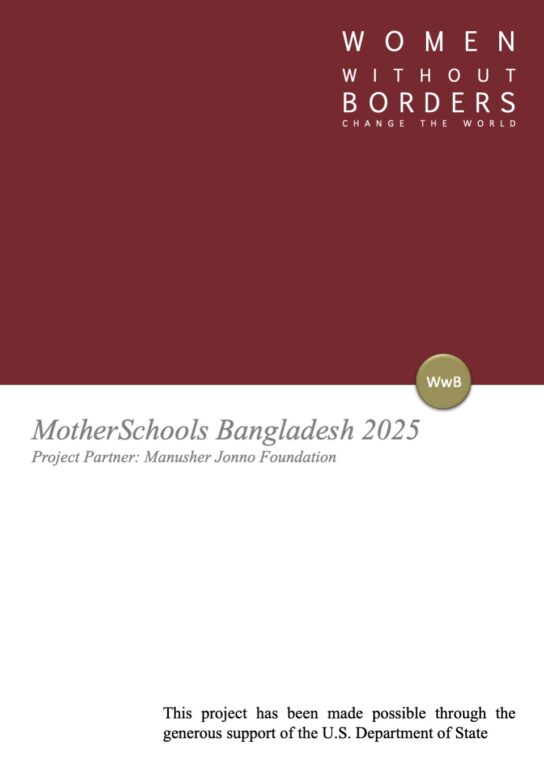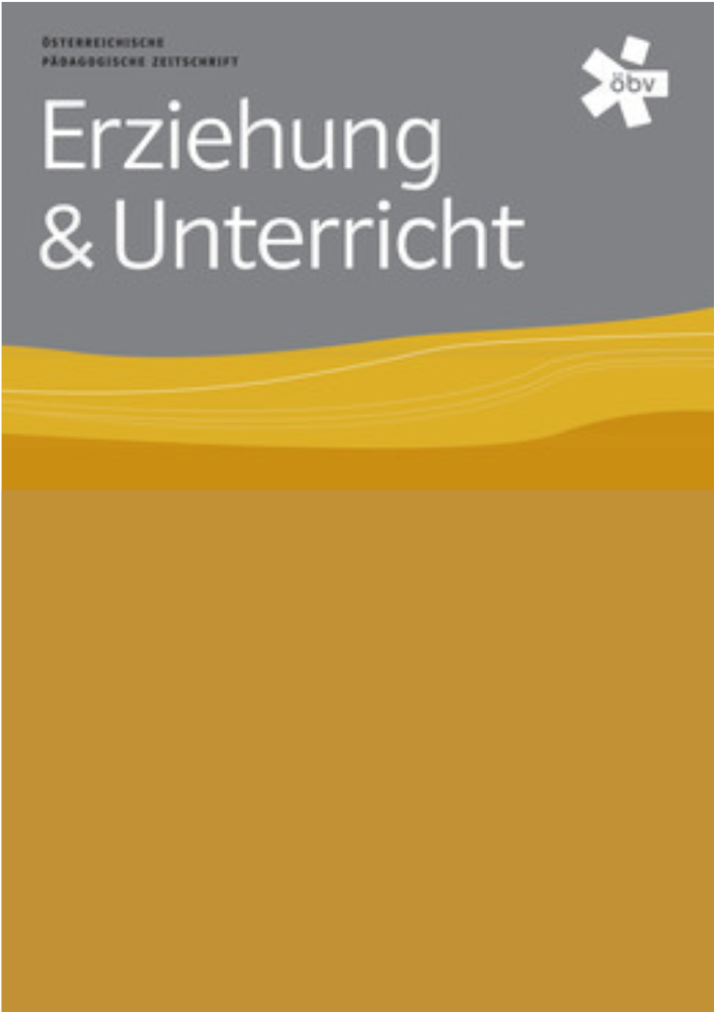Between 2022-2024, WwB implemented two iterations of its ‘MotherSchools: Parenting for Peace’ Model in Dhaka, Bangladesh with its local partner Manusher Jonno Foundation. The programme in Dhaka, which is part of a multi-country project supported by the U.S. Department of State, saw ten groups convene over the course of two years across ten wards. This impact report offers an overview of the MotherSchools project in Bangladesh, introduces WwB’s impact model, and presents the impact findings based on quantitative and qualitative data from the perspectives of project stakeholders, including Participants, Teachers, and Notetakers.
Political and religious extremism, carried out primarily by local militant groups in Bangladesh, can be traced back to before the country gained independence in 1971, and has generally been viewed as a regional issue. In the last decade however, the expansion of transnational terrorist groups to South Asia has garnered widespread global attention, and a number of high-profile attacks in Bangladesh have raised alarm among local and international policymakers alike. Research suggests that there is a growing trend of vulnerable youth who are being recruited and radicalised by both local and transnational terrorist groups. Drivers and mechanisms of radicalisation are multifaceted and often context-specific; unemployment, poverty, lack of prospects, increased political, social and religious polarisation, personal grievances, and lack of identity are key drivers, while peer groups, online recruitment, or community leaders, tend to be the main mechanisms of radicalisation in Bangladesh. Moreover, there is research that also indicates an increase in the number of women in Bangladesh who are being targeted by extremists to play more active roles in their organisations.
Executive Summary: Participant Perspectives
Below is an overview of some of the key findings from the perspective of the Participants who went through the programme, receiving approximately 40 hours of training in PVE (preventing violent extremism), childhood development, security, peacebuilding, and communications.
Confidence | Prior to MotherSchools, Participants indicated they had a hard time acknowledging the power they themselves held in their communities. MotherSchools helped them to strengthen their courage and sense of self, and to recognise the important role they can play. They now feel more confident to step up and take action in their communities.
Competence in Parenting | Participants expressed a desire to improve their relationship with their children, but claimed they were lacking the skills and the time. In MotherSchools, they gained knowledge about different communication methods and parenting styles; most importantly, they learned that parenting can and should be more than just providing food and shelter.
Competence in PVE | In the beginning of the programme, most Participants felt unaware of or not responsible for all the dangers that await their children. They assumed there was nothing they could do to ensure their safety. They have now developed a clear picture of the threat of extremism, understand push and pull factors that may attract youth, and are eager to play a crucial role in preventing the spread of extremism in their communities.
Applying the Knowledge | Many Participants reported that their relationships at home were lacking in communication and respect towards each other. After they started to implement their newly learned skills, their home life improved and they encountered more respect from their partners and community. Thus, MotherSchools sparked an interest in not only the Participants, but also in their home environments.
Breaking the Silence | Many Participants shared they felt intimidated by a culture of taboos in their community. Not being able to talk about their problems and worries in fear of shame and exclusion was something many of the Participants experienced. MotherSchools provided them with a safe environment to talk about their problems. They voiced their desire to no longer stay silent and to stop the spread of violent extremism in their communities through open dialogue.
Leadership | Many Participants expressed the desire to stand up for their children and their communities, but a patriarchal society coupled with a lack of education held them back. As a result of MotherSchools, they started viewing themselves as role models in their families. They began to slowly encounter more acceptance and respect for their opinions and decisions, inspiring them to share their knowledge and take on leading responsibilities in their communities.
Trust | The Participants conveyed a fear of judgment and gossip, with secrets and a lack of trust dominating in their communities. In MotherSchools, they learned to build trusted networks that helped them in opening up to their husbands, their children, and their community, making them feel less alone. The Participants realised that shared trust creates an environment in which problems can be solved together, making recruiters less likely to succeed in recruiting children who are embedded in a safe home.
Norms | The Participants shared that as women, they are often placed into the role of mother, caretaker, housekeeper – facing a lot of pressure from their husbands and in-laws. Following their participation in MotherSchools, their husbands started to respect them more and more. The Participants now enjoy being able to include their partners in the housework and in raising the kids. Husbands even started showing interest in hearing about the knowledge gained by Participants in the MotherSchools.
Networks | Prior to MotherSchools, Participants expressed feelings of loneliness regarding worries and concerns about their children. In the sessions, Participants learned to build a trusting network and to support each other not only in their daily lives, but also against the threat of violent extremism and other dangers their children and communities are facing.
To read more on the impact of MotherSchools Bangladesh 2022-2024, read the full report.



